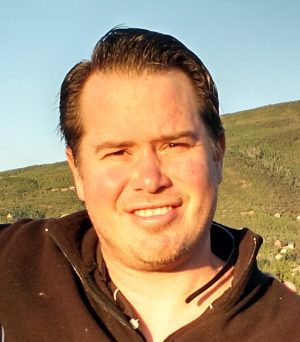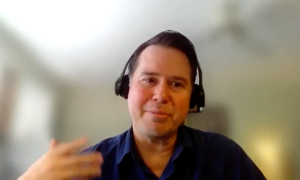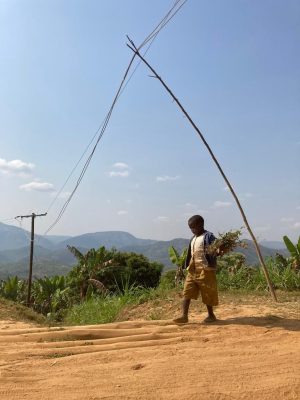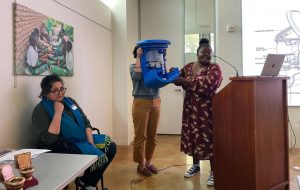
By Sam Goldman
Kris Kohler, a sociologist who has taught at universities across California and beyond, joined the Blum Center this fall to teach two courses: Development Engineering 202: Critical Systems of Development, and Global Poverty and Practice 115: Global Poverty: Challenges and Hopes. Kohler holds a Ph.D. and M.A. in sociology from UC San Diego and a B.A. in Black studies and political science from UC Santa Barbara.
Kohler’s research and teaching has centered on transnational activism and social movements, international development (or “underdevelopment,” as he notes), and global sociology. He has lived and worked in two dozen countries, most notably in Zambia, and has served in the Peace Corps, worked as a rural health volunteer, and is a United Nations Sustainable Development Goals Open Pedagogy Fellow. Kohler also has over 80 courses under his belt, including lectureships at San Diego State, UC Santa Barbara, Montgomery College, UC Merced, Stanislaus State University, and Mount St. Mary’s University.
“UC Berkeley is probably the finest public university in America, if not the world,” he says. “I am a product of California, and the UC system, and the opportunity to teach at UC Berkeley is an honor.”
GPP 115 is a core course of the undergraduate Global Poverty and Practice Minor and focuses on 20th-century development and 21st-century poverty alleviation, and Kohler brings a wealth of first-hand, on-the-ground experience.
“I consider myself a ‘citizen of the world,’ and the challenges of social inequality, poverty, power, and oppression have been concerns of mine for as long as I can remember,” he says. “I majored in ethnic studies, I studied abroad, I participated in the Peace Corps and various social movements. I have studied transnational social movements and international development for a very long time as well. The Global Poverty and Practice course is a wonderful fit for me, providing the opportunity to highlight the role of power and movements in questions of poverty and development.”
“We are excited to have Kris join the teaching team of the GPP Minor,” says Chetan Chowdhry, the Blum Center’s director of student programs and GPP’s lead advisor. “GPP 115 isn’t an easy course to teach, but students in the course have already expressed how much they are learning from it just a few weeks into the semester.”

DevEng 202 is one of two required courses for first-semester Master of Development Engineering students, the inaugural cohort of which started classes last month. M.DevEng students learn a variety of methodological frameworks, the skills needed to participate in the sustainable-development field, and the history and ethics of global development. “I am a ‘pessimistic optimist,’ Kohler says. “I know that ‘another world is possible,’ but strategies for positive social change must be grounded in sophisticated understanding of the challenges which face us.”
“It’s been exciting to sit in the class and see how engaged the students are with the material. It is often hard to stop the conversation for the sake of moving to the next reading and topic,” says M.DevEng program coordinator Yael Perez. “The power of the class was particularly evident when one of the students asked to turn off the recording for a question that he didn’t want to have on any record due to its political sensitivity in the country he is from.”
No one or two perspectives or disciplines are enough to capture the realities of poverty and development. Kohler grounds his teaching in a “globalized, transnational, and international world of experience and scholarship” and “emphasizes cross-national and cross-cultural comparison of sociological concepts,” and pulls from a diverse array of media to accommodate students’ various learning styles and to facilitate cross-cultural communication. Importantly, his courses’ concepts and research are not merely theoretical. “I take great pains to outline the relevance of social and political theory to the lives of real, flesh-and-blood people,” Kohler says.
“We are thrilled to have Kris aboard to teach such pivotal courses in the M.DevEng and GPP programs,” said Prof. Alice Agogino, education director of the Blum Center. “He not only brings a deep and first-hand familiarity with his subjects but also years of experience and passion for teaching the next generation of effective changemakers.”
Every class, Kohler notes, is an opportunity to debunk myths and hegemonic ideas. “Students in my courses are constantly challenged to interrogate dogmatic understandings of globalization, economics, democracy, freedom, justice, crime, race, gender, culture, and nation,” he says.




